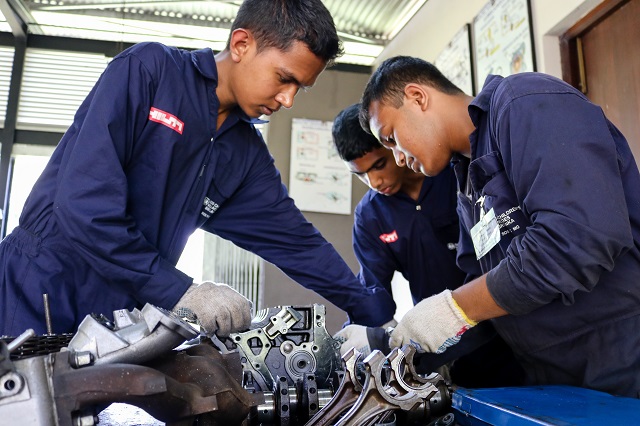SOS Vocational Training Center Viet Tri, Vietnam
Providing Vocational Training for Unemployed Youth in Vietnam
In spite of various government initiatives, many young people in the city of Viet Tri, the capital of Phu Tho province, continue to live in poverty. They often struggle to access quality education and secure employment, in part due to the lack of educational facilities in the area, and the high cost of higher education or vocational training.
For the past 8 years, youth unemployment rates have been on the rise and almost half of all unemployed are under the age of 24.

The SOS Vocational Training Centre Viet Tri opened in 2005. It was built by SOS Children’s Villages in response to the high level of youth unemployment in the region, the changing demands of the job market, and the lack of training facilities accessible to vulnerable youth.
The facility currently offers training to 237 young people age between 17 and 24. In addition to learning a profession, students are encouraged to attend IT and English classes in order to make them more competitive on the job market. Some of the crafts taught at the center include carpentry, plumbing, electrics (lights and industrial) and electronics. Trainings are designed to ensure students graduate with a balance of practical and theoretical knowledge. The training center consists of ten classrooms, six workshops, a library, a canteen, and an administration and service area. 18 teachers work full time at the center.
Most students graduate within 2 or 3 years depending on the profession they are learning. Approximately 94% of students enrolled at the training center graduate from their program, and 90% of them secure employment upon graduating.
The majority of students attending the training center are vulnerable youth from the local community. Due to their high level of vulnerability, many of them receive a scholarship from SOS Children’s Villages that allows them to study at the without paying tuition fees. For students who live too far from the training center, or who can’t afford the daily transportation cost, residences are offered.
